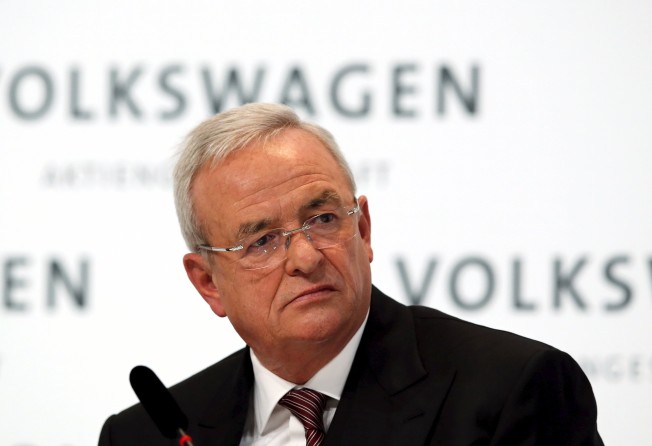Will the punishment fit Volkswagen’s crime?

His object all sublime, He will achieve in time. To let the punishment fit the crime; the punishment fit the crime.
And make each prisoner pent, unwillingly represent. A source of innocent merriment; of innocent merriment.
The Mikado, Gilbert and Sullivan
It has not been a laughing matter for Volkswagen (VW) shareholders who have lost a third of their investment in the share since the beginning of the week. The engineers who conjured up the ‘defeat software’ to make the cars lose power during an emission test and then revert back to their normal power were nothing short of brilliant. Though it might have been easier to design a cleaner engine.
They were also idiots to contemplate doing it and they made two mistakes. Regulators, especially the US Environmental Protection Agency (EPA), don’t like to be made to look like fools. And they were caught. The early reports, which can be quite accurate, are that VW could be fined as much as US$18 billion in the US alone, which equates to about $37,000 per car sold.
This might be justified by imputing the marginal cost of the environmental damage, the lost taxes as a result of the car coming in a lower tier of road tax, misleading ‘clean diesel’ advertising, and fines for being a very naughty boy. However, this sum is similar to the average cost of actually buying a VW. There appears to be some imbalance between the punishment and the crime.
Just by way of reference, BP set aside US$42 billion to settle its costs for the environmental spill in the Gulf of Mexico. This included an $18.7 billion fine and clean up costs, which was nearly half the stock market size of the company before the oil spill. That the company should make good and be punished there is no doubt – but it must be relevant and proportionate, and include significant management dismissals.
In VW’s case, damage to the environment is likely to be negligible. New engine diesel emissions are way below those of even a few years ago. The cars represent less than 1 per cent of those sold in the US and there are plenty of gas-guzzling SUVs out there. No doubt many VW owners will hold an onion to their eyes and jump on the compensation bandwagon but fundamentally VWs are known for being well-built cars and this scandal will not impact that.
Indeed all car manufacturers are skirting around the rules; just not in such an obvious manner. It is well reported that the tests are highly predictable and have been around for years. Few drivers find that they can get the same performance as a new car driven by a professional.
One of the reasons that the stockmarket is reacting so aggressively towards the stock is because we don’t know where all of this will end. VW is a well-known global brand so authorities all over the world are clamouring to get on the fine gravy train. The use of diesel is much higher in Europe than in the US – so worldwide the fines could be much higher.
In VW’s case, uncoordinated fines are unlikely to become so heavy as to drive the company into liquidation, or a merger, or a fire sale of assets because part of the company is publicly owned. Could the environmentally friendly German government stand idly by while regulators in another country levy unrealistic fines that destroy jobs at home? Where do these fines go? Are commissions paid to the regulators based on the size of the funds levied?
BP lost over 52 per cent of its value over the first 10 weeks of its Deepwater Horizon incident; although once the boundaries of the problem had been appreciated it bounced 80 per cent from its lows by the end of 2010. One could argue that BP was a much worse case than VW.
Even since the dawn of regulation, organisations have tried to bend or get round the rules but punishment requires discretion, and as we know from the banking world US regulators often couch their legal accusations publicly and emotively.
Competitive regulators circle a wounded firm like a pack of lions after their quarry and it will make it harder for companies to plead mea culpa; to own up. At least VW came clean and did not try to bluff it out in court where the lines are so fine that they might have got away with it.
At least the Mikado, as king, was a single regulator with balanced judgment. It is going to be a tough job for VW to coordinate all the national regulators to convince them that the punishment must fit the crime.
Richard Harris is chief executive of Port Shelter Investment Management